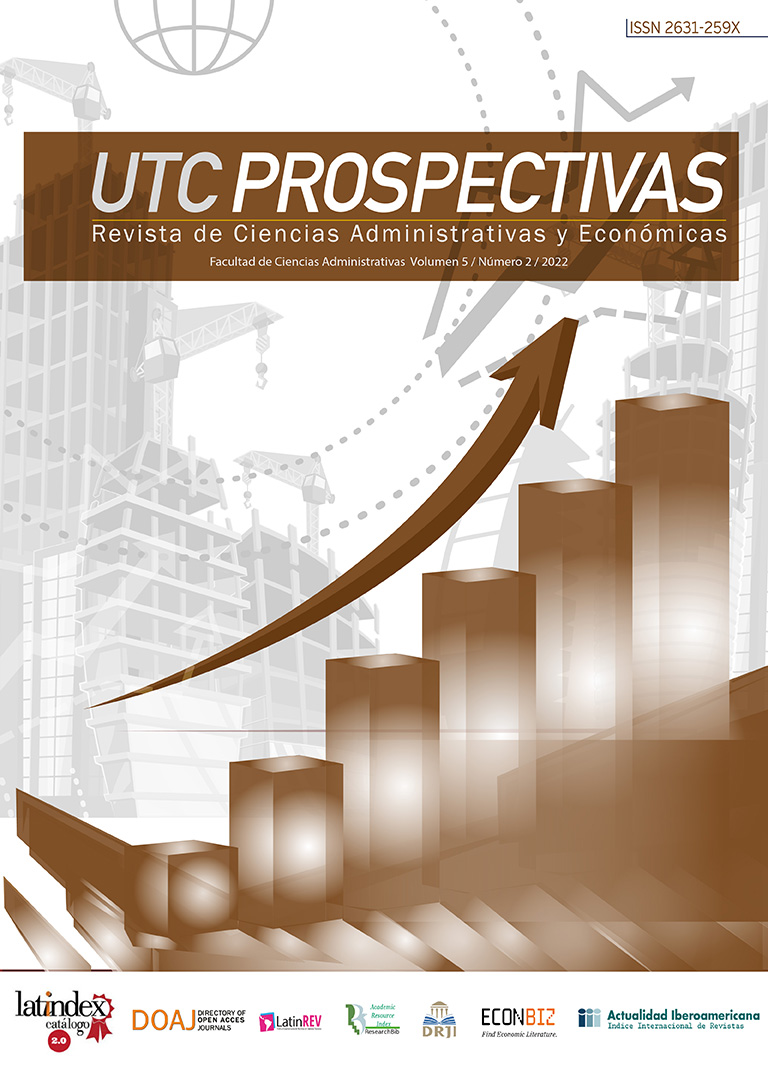Relación de la inteligencia emocional y el liderazgo
Abstract
A lo largo del tiempo la inteligencia emocional y el liderazgo han ganado importancia en varios ámbitos. El presente artículo contiene un análisis de la relación entre la inteligencia emocional y su impacto en el liderazgo. Se recurrió a la revisión de literatura académica de diversas bases de datos científicas. Se obtuvo como resultados, un análisis histórico sobre el desarrollo de la inteligencia emocional y el liderazgo, cuyos principales planteamientos teóricos revelan relaciones conceptuales que otorgan su asociación. Los modelos de inteligencia emocional y liderazgo, permitieron identificar que no sólo deben ser concebidos desde la perspectiva individual del directivo, sino que la aplicación del liderazgo y el uso de la inteligencia emocional dependen del entorno en el cual un líder se desenvuelve, por lo que esta asociación, está moderada desde las interacciones sociales.
Downloads
References
Antonakis, J., Ashkanasy, N. M., & Dasborough, M. T. (2009). Does leadership need emotional intelligence? Leadership Quarterly, 20(2), 247–261. http://doi.org/10.1016/j.leaqua.2009.01.006
Ashkanasy, N. M., & Dasborough, M. T. (2003). Emotional awareness and emotional intelligence in ledearship teaching. Journal of Education for Business, Sept./Oct., 18–22. http://doi.org/10.1080/08832320309599082
Ashkanasy, N. M., Härtel, C. E., & Zerbe, W. J. (2000). Emotions in the workplace: Research, theory, and practice: Greenwood Publishing Group.
Bautista J. Bermudez M. (2009). Inteligencia Emocional y liderazgo femenino en cargos de Dirección en Organismos Públicos. Universidad Rafael Belloso Chacín. ISSN: 1856-9331. Edición No 7 –Año 4 (2009)
Brackett, M., Rivers, S., & Salovey, P. (2011). Emotional Intelligence: Implications for Personal, Social, Academic, and Workplace Success. Social and Personality Psychology Compass, 88-103.
Brito, J. (2016). Inteligencia emocional y liderazgo. INNOVA Research Journal, ISSN 2477-9024. DOI: https://doi.org/10.33890/innova.v1.n4.2016.19
Casas. G. (2016). La inteligencia emocional. Revista Costarricense de Trabajo Social. 1- 9
Chatterjee, A. Kulakli, A. (2015). An Empirical investigation of the relationship between
Emotional Intelligence, Transactional and Transformational Leadership Styles in banking sector. Procedia - Social and Behavioral Sciences 210 ( 2015 ) 291 – 300
Dulewicz, V., & Higgs, M. (2000). Emotional intelligence - A review and evaluation study. Journal of Managerial Psychology, 15(4), 341–372. http://doi.org/10.1108/02683940010330993
Gardner, H. (1985). Frames of Mind: The Theory of Multiple Intelligences. the theory of multiple intelligences. http://doi.org/10.2307/3324261
Goleman, D. (1995). Emotional intelligence. New York, 9, 185–211. http://doi.org/10.1016/j.paid.2003.12.003
Hedlund, J. y Sternberg, RJ. (2000). Too many intelligences? Integrating social, emotional and practical intelligence. The handbook of emo-tional intelligence(pp. 136-168). San Francisco: Jorsey-Bass.
Ingram, J., & Cangemi, J. (2012), “Emotions, emotional intelligence and leadership: a brief, pragmatic perspective”. En Education, 132, 4: 771-778.
Jimenez, M. (2018). Leadership Style, Organizational Performance, And Change Through The Lens Of Emotional Intelligence.Foundations of Management, Vol. 10 (2018), ISSN 2080-7279 DOI: 10.2478/fman-2018-0018
Leal, A. (2011). “La inteligencia emocional”. Revista Innovación y Experiencias Educativas. N°39. ISSN 1988-6047 DEP. LEGAL: GR 2922/2007. Cádiz - España.
Mayer, DiPaolo, M., & Salovey, P. (1990). Perceiving the affective content in ambiguos visula stimuli: A component of emotional intelligence. Journal of Personality Assessment, 772–781.
Mayer, J. D., & Salovey, P. (1997). What is emotional intelligence. In Emotional development and emotional intelligence (pp. 1–31). http://doi.org/10.1177/1066480710387486
Mayer, J. D., Salovey, P., Caruso, D., & Mayer, D. J. (2000). Models of emotional intelligence. Handbook of Intelligence. http://doi.org/10.1080/14766080903069364
Mayer, J. D., Salovey, P., Caruso, D. R., & Sitarenios, G. (2003). Measuring emotional intelligence with the MSCEIT V2.0. Emotion, 3(1), 97–105. http://doi.org/10.1037/1528-3542.3.1.97
Mikulic, I.M., Caballero, R y Muiños, R. (2013). Adaptación Argentina del Test de Inteligencia Emocional de Mayer - Salovey-Caruso (MSCEIT V 2.0). Universidad de Buenos Aires. Anuario de Investigaciones . Volumen XX.
Ruler - Yale Center for Emotional Intelligence. (2013, June 10). Retrieved February 1, 2015, from http://ei.yale.edu/ruler/
Salovey, P., Mayer, J. D., Goldman, S. L., Turvey, C., & Palfai, T. P. (1995). Emotional Attention, Clarity, and Repair: Exploring Emotional Intelligence Using the Trait Meta-Mood Scale. Emotion, Disclosure, and Health, (9058020), 125–154. http://doi.org/10.1037/10182-006
Thorndike, R. L., & Stein, S. (1937). An evaluation of the attempts to measure social intelligence. Psychological Bulletin, 34(5), 275–285. http://doi.org/10.1037/h0053850
Wechsler, D. (1940). «Non-intellective factors in general intelligence». Psychological Bulletin (37): 444-445.
Zurita, F. Olmedo, E. Chacón R. Expósito J. Matinez A. (2019). Relationship between Leadership and Emotional Intelligence in Teachers in Universities and Other Educational Centres: A Structural Equation Model. International Journal of Environmental Research and Public Healt. Granada. España. https://doaj.org/article/426831de265b411a8508ba2f0ef20190
Copyright (c) 2023 Prospectivas UTC "Revista de Ciencias Administrativas y Económicas"

This work is licensed under a Creative Commons Attribution 4.0 International License.
Los autores tienen derechos exclusivos sobre el trabajo publicado.
La revista tiene acceso libre. Los artículos pueden leerse, descargarse, copiarse, distribuirse, imprimirse y hacer referencia al texto completo con atribución, sin ninguna restricción, siempre y cuando se brinde los créditos correspodnientes al material de origen.
This journal is licensed under CC BY 4.0









